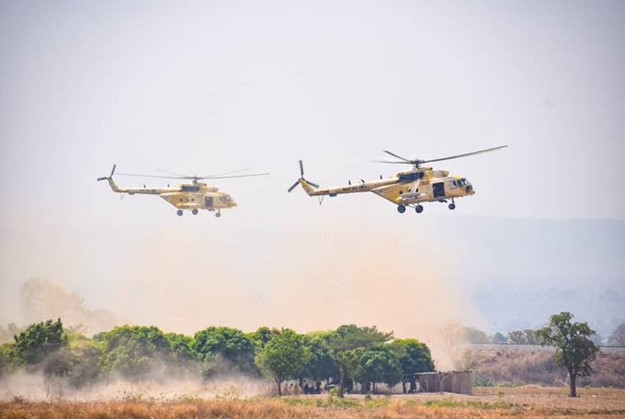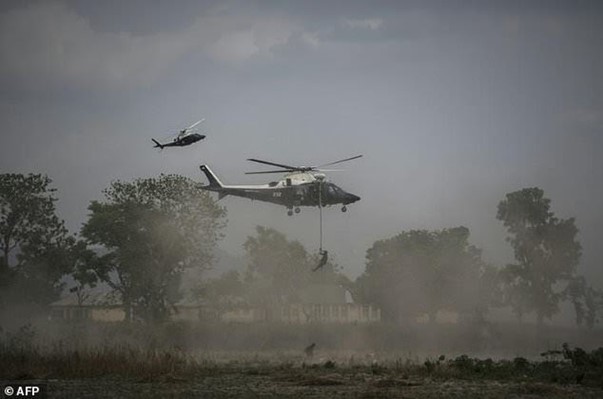Nigerian Military Needs A Defence Aviation Safety Body
The recent accidents involving Nigerian Air force aircraft highlights the need for an improvement in the management of aircraft safety and airworthiness in the military.

The Nigerian Air Force in the past few months has suffered a series of combat and non-combat related aircraft accidents that have led to loss of military personnel and attrition of operational capacity.
In May, a Nigerian Air Force Beechcraft King Air 350i aircraft with the country’s Chief of Army Staff, Ibrahim Attahiru, and other military personnel on board crashed in Kaduna, northwest Nigeria, a few days after an ATR 42 aircraft was damaged in Edo State in the South-south region while approaching for landing.
Air Force authorities in March lost radar contact with an Alpha jet on a combat support mission in Borno State in the Northeast and in Feb., an Air Force Beechcraft KingAir B350i aircraft with seven personnel on board crashed while returning to the Abuja Airport after reporting engine failure en-route Minna, Niger State, North-central Nigeria.
Following the Feb. accident, the company that built the twin-propeller Beechcraft King Air 350i aircraft said in a statement that it had been notified of the accident, which was being investigated by Nigeria’s Aircraft Investigation Bureau (AIB) and the U.S. National Transportation Safety Board.
The AIB has also announced that the Nigerian Air Force had mandated it to lead the investigation into the crash in Kaduna, stating that the Flight Data Recorder and the Cockpit Voice Recorder from the aircraft have been recovered. The agency said an investigation has commenced.
Although military air crashes and accidents are not new, the recent accidents will have an impact on the Air Force operational capacity, especially at a time of escalating use of airpower for internal security operations and logistics missions.
Lucky Irabor, Nigeria’s Chief of Defence Staff directed that an Accident Investigation Board be constituted to unravel the immediate and remote cause(s) of the Beechcraft accident that led to the death of the Army Chief.
Similarly, Oladayo Amao, the Chief of Air Staff, constituted a committee of serving and retired senior officers to conduct a safety audit of all Nigerian Air Force operational and engineering units.

Nigerian Special Forces rappelling From Nigerian Navy Agusta109 helicopter via AFP.
These reactions and events have shown that it has become imperative to set up joint and effective mechanisms to improve the safety of military aircraft and personnel onboard.
The United Kingdom Defence Safety Authority which incorporates Military Aviation Authority plays a crucial role in regulating and ensuring airworthiness and safety across UK’s defence aviation activities. In Australia, the Defence Aviation Safety Authority is responsible for promoting the safety of military aviation and effective management of aviation safety risks.
Nigeria’s current joint security environment posture alongside security and military assistance cooperation with the UK provides an important opportunity for the military to establish a Defence Aviation safety branch to provide expertise, enforce adherence to the appropriate regulations and promote airworthiness in the military.
The creation of a military safety authority will also provide a high standard of independent accident investigation and reporting capability alongside unified procedures in the Navy and Air Force.
Support Our Journalism
There are millions of ordinary people affected by conflict in Africa whose stories are missing in the mainstream media. HumAngle is determined to tell those challenging and under-reported stories, hoping that the people impacted by these conflicts will find the safety and security they deserve.
To ensure that we continue to provide public service coverage, we have a small favour to ask you. We want you to be part of our journalistic endeavour by contributing a token to us.
Your donation will further promote a robust, free, and independent media.
Donate HereStay Closer To The Stories That Matter




